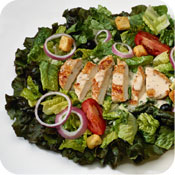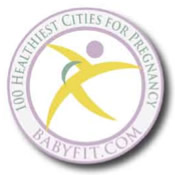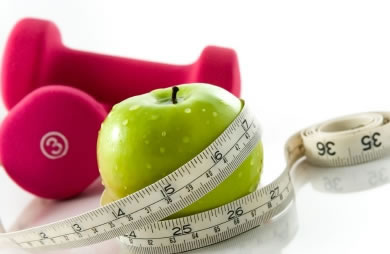
Good nutrition is important during pregnancy, especially during the critical first several weeks of development. But deciding what constitutes good nutrition can be confusing.
Eating the Natural Way
Consuming organic foods is one way to eat healthier. Organic food is produced without using conventional pesticides or bio-engineering. Organic meat, poultry, eggs and dairy products come from animals that are not given antibiotics or growth hormones. And organic foods are environmentally-friendly, since organic farming promotes the use of renewable resources, as well as soil and water conservation.
A great time to begin eating organic foods is before you become pregnant, but choosing to go organic is a wise decision at any time. If you are trying to conceive, it's important to note that certain chemicals in the food chain can cause sperm damage, so try to have your partner start eating organic foods before you conceive to ensure the healthiest baby possible.
You Are What You Eat?And So Is Your Baby
Over one billion pounds of pesticides are used in the United States each year to protect crops from insects, pests and weeds. We then consume some of these chemicals as pesticide residues on fruits and vegetables. During pregnancy, these chemicals can reach your baby through the umbilical cord and can later be passed through your breast milk if you're not careful.
So, extra caution should be taken during pregnancy and lactation. This could mean washing fruits and vegetables before eating. This could also mean eating certified organic foods as a good way to reduce your risk of pesticide exposure and safeguard your child's health. Either way, it is extremely important to get the recommended servings of fresh foods, including fruit, vegetables, and meat. It's important to note that avoiding fresh fruits and vegetables altogether is much more harmful than any traces of pesticides that you might come across. Just choose what you eat wisely, just as you would any other food.
What does "Certified Organic" Mean?
The words "organic" and "certified organic" are sometimes used in a misleading manner to attract consumers, however. To assure that you are indeed purchasing organic product, look for a seal on the package from the certifying agency, such as the Organic Crop Improvement Association, or ask the store for the organic certificate for the product. "Certified organic" refers to agricultural products that have been grown and processed according to uniform standards and verified by independent state or private organizations accredited by the USDA. All products sold as "organic" must be certified.
Continued ›
| 






Member Comments